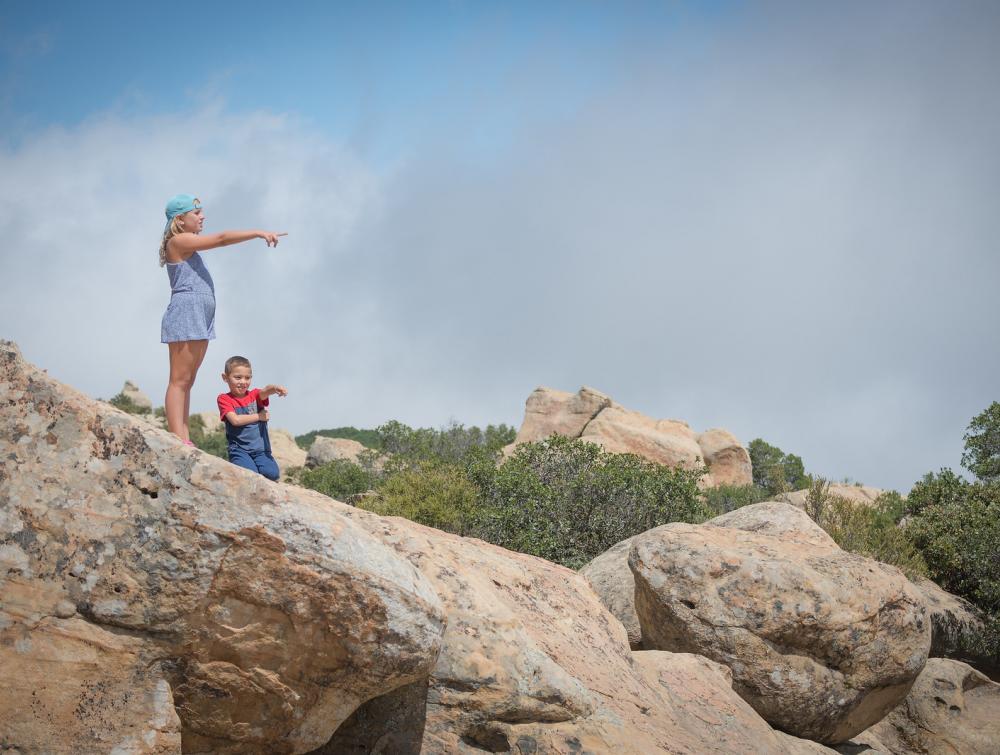UPDATE: Backlash expected to drive Interior to renew "Every Kid in a Park" program

Mason Cummings, The Wilderness Society
The "Every Kid in a Park" program, which gives fourth graders and their families free access to national parks and other public lands, will reportedly be extended for another year.
Days after it was reported Interior Secretary Ryan Zinke planned to end "Every Kid in a Park," which gives fourth graders and their families free access to national parks and other public lands, the program is expected to be renewed for another year.
Pressure applied by Americans of all stripes, along with The Wilderness Society and other groups in the Outdoors Alliance for Kids, led the Department of the Interior to back off, at least temporarily preserving a program that offered many kids—notably those attending schools where much of the student body is from low-income households--their best chance to visit a national park.
Aside from being a victory in its own right, this news reinforces that ordinary people can still make a difference. Just a few months ago, the Trump administration elected to modestly raise national park entrance fees rather than enacting sharp increases, as was previously planned. That reversal came after tens of thousands of Americans submitted comments objecting to drastic price hikes.
Every Kid in a Park “would not have been extended without public pressure,” according to Paul Sanford, national director of recreation policy at The Wilderness Society. “When the administration proposes actions like massive entrance fee increases that would limit access to our parks, Americans have spoken up, demonstrating that ensuring the opportunity for everyone to access our national parks is an important American value.”
Every Kid in a Park especially important for low-income households, schools
Launched by the Obama administration, "Every Kid in a Park" is specially geared towards providing opportunities for kids attending schools where much of the student body is from low-income households. It is a sorely needed initiative: Broad research as well as analyses of individual parks show national park visitors tend to have a higher household income than the national median, suggesting these remain destinations enjoyed disproportionately by the wealthy.
Many of the hundreds of thousands of fourth graders who visit a national park for free through "Every Kid in a Park" are seeing these places for the first time, and without it, they may not have the chance.
People of color, already notoriously underrepresented among national park visitors, are more likely than others to say that high entrance fees are a reason they don't visit more.
Zinke and Trump keep shutting people out of public lands
Despite this step back from the brink, the Trump administration has an awful record of limiting access to the outdoors. Zinke has talked a lot about how important it is that Americans experience nature, and even the cascading effects of those experiences (For example: "The more people we can get outdoors, the better things will be for our public lands"). But all too often, he has promoted plans that would make public lands more exclusive (while inviting mining, fossil fuel and other extractive interests to make themselves at home).
Zinke's recent national park entrance fee increases came just months after he eliminated several of the entrance fee-free days offered by the National Park Service every year. Zinke has even blamed "Every Kid in a Park" for such decisions, lamenting that "there’s not a whole lot of people who actually pay at our front door” because Interior offers discounts to kids, the elderly, veterans and others (an idea: rather than nickel-and-diming ordinary Americans who want to enjoy the great outdoors, Zinke should address the budgetary starvation diet the Trump administration has imposed on public lands and the agencies that care for them).
We will continue working toward the permanent instatement of "Every Kid in a Park" as part of a larger plan to ensure young people--and all Americans--enjoy equitable access to and opportunities within our public lands.
